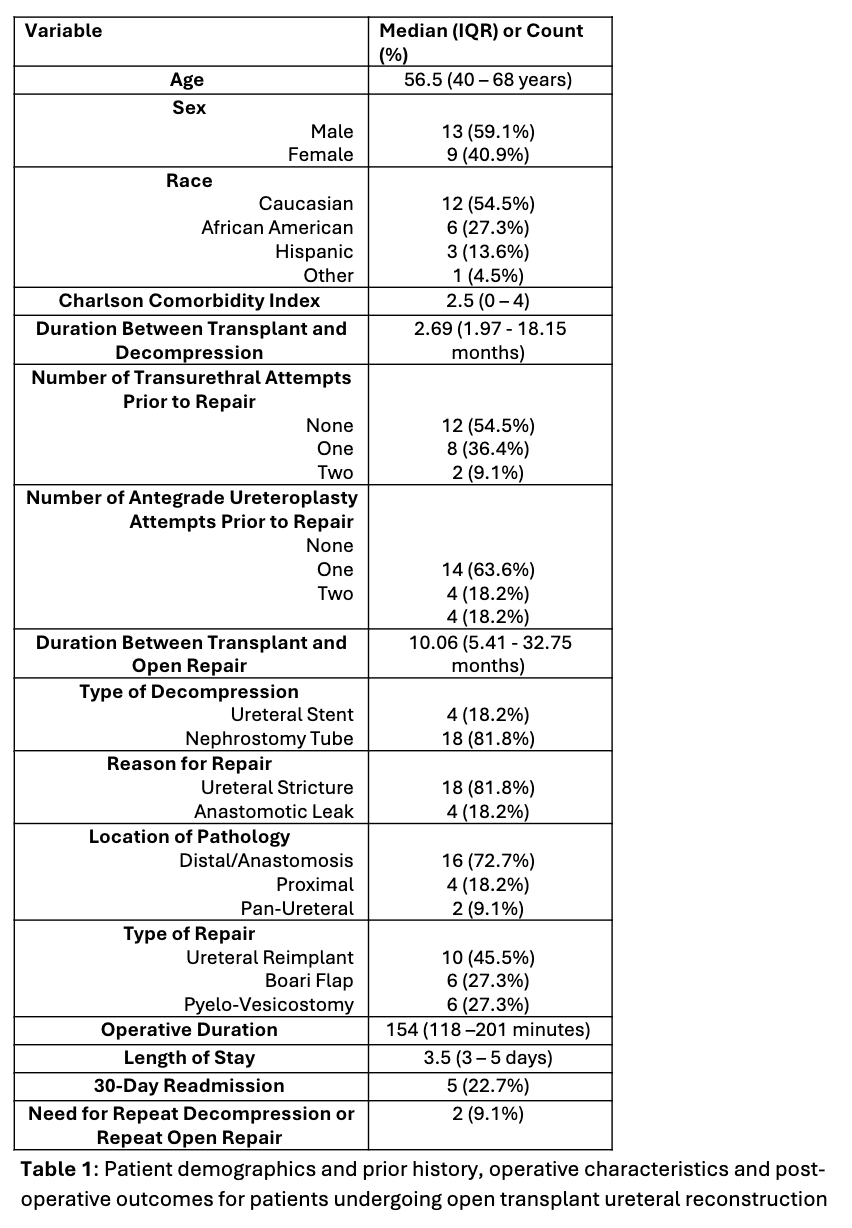Back to 2025 Abstracts
Open Transplant Ureteral Reconstruction: A Single Institution Experience
Ankur Ushir Choksi, MD1, Sanjay Kulkarni, MD
2, John W. Colberg, MD
1.
1Department of Urology, Yale School of Medicine, New Haven, CT, USA,
2Division of Transplant and Immunology, Department of Surgery, Yale School of Medicine, New Haven, CT, USA.
BACKGROUND: The urologic complications following renal transplantation are low and usually manifest in the form of urinary leak or ureteral stricture. While endoscopic attempts may be employed, surgical revision is often necessary. In this study, we retrospectively analyze our intuition's experience with open transplant ureteral reconstruction.
METHODS: We retrospectively analyzed patients who underwent an open transplant ureteral reconstruction between December 2019 and December 2024. Patient demographic, disease characteristics, types of prior procedures, and intra-operative and post-operative outcomes were evaluated. Descriptive statistics were calculated.
RESULTS: A total of 22 patients were identified having undergone an open transplant ureteral reconstruction. Results are demonstrated in Table 1. Median age was 56.5 years (IQR: 40 - 68). A majority of patients were male (59.1%), Caucasian (54.5%) and with minimal co-morbidities . Most patients required graft decompression within a median duration of 2.69 months (IQR: 1.97 - 18.15) and ultimately underwent open reconstruction within a median of 10.06 months (IQR: 5.41 - 32.75) from transplantation. A majority of patients did not undergo attempt at transurethral endoureterotomy (54.5%) or antegrade balloon ureteroplasty (63.6%). A majority of cases involved pathology at the distal ureter or anastomosis (72.7%). Types of reconstruction performed including ureteral reimplant (45.4%), boari flap (27.3%) and pyelo-vesicostomy (27.3%). Median operative duration was 154 minutes (IQR: 118 - 201 minutes) and median length of stay was 3.5 days (IQR: 3 - 5 days). Thirty day readmission rate was 22.7% and two patients required a repeat procedure.
CONCLUSIONS: In our patient series, open transplant ureteral reconstruction resulted in high rates of success. Given the variable location of ureteral pathology, urologists must be prepared for a variety of surgical techniques.

Back to 2025 Abstracts
